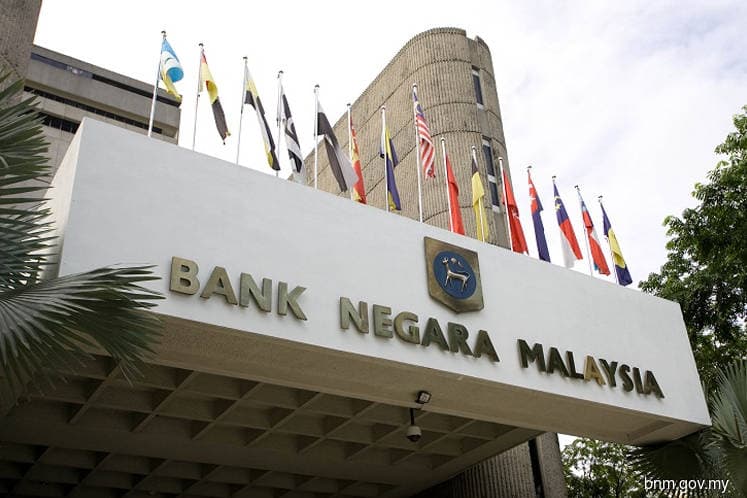
KUALA LUMPUR (July 5): Malaysia's central bank will likely hold its benchmark interest rate steady at a policy review on Tuesday, to assess the effects of a rate cut in May and give itself room for more easing if economic growth falters later this year, a Reuters poll found.
All 11 economists surveyed expect Bank Negara Malaysia (BNM) to keep its overnight policy rate unchanged at 3.00%, even as the country's export growth lost momentum and inflation remained benign in the first five months of the year.
In May, Malaysia's central bank became the first in Southeast Asia to cut interest rates this year as it moved to bolster its economy on concerns about slowing global growth and the impact from the Sino-U.S. trade war.
The cut was Malaysia's first since July 2016, and reflected changes in global interest rates and the increasingly dovish stance of many central banks over the first half of the year.
"The central bank will likely wait a little longer before pencilling in one more rate cut," HSBC said in a research note on Friday.
"We expect BNM to ease in 4Q19 when domestic demand will start slowing."
Malaysia's exports in May rose 2.5% from a year earlier, slower than expected, on a decline in shipments of manufactured goods to major trade partner China.
Annual inflation in May remained unchanged at 0.2% for the third month in a row. Inflation has been mild since an unpopular consumption tax was scrapped in June 2018, while transport costs have declined after the government put a cap on domestic fuel prices.
BNM will likely take a more "reactive" stance on its key rate, with an eye on whether the U.S. Federal Reserve decides to cut interest rates later this year, said Irvin Seah, senior economist at DBS in Singapore.
Expectations the Fed could cut rates at its July 30-31 meeting are rising, and some investors are betting it could cut by as much as 100 basis points in the coming year.
Seah said Malaysia's central bank still needs to wait for the effects of its May cut to kick in before it can decide on another rate change.
"If they see a need to have a more aggressive rate cut, they should have done a one-shot 50 point cut earlier on," Seah said.